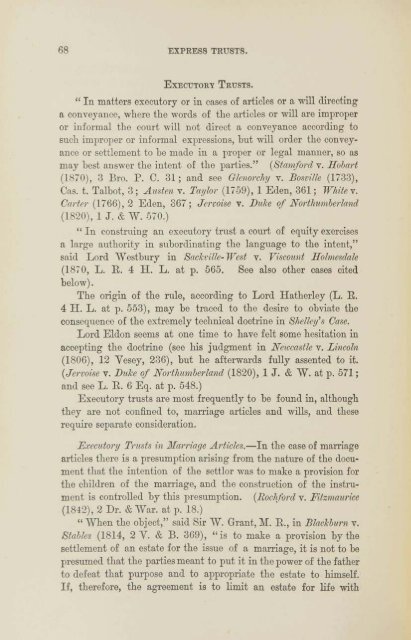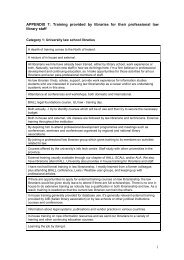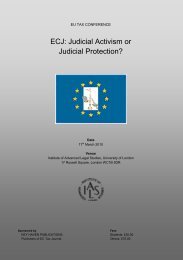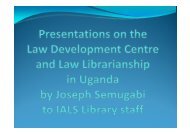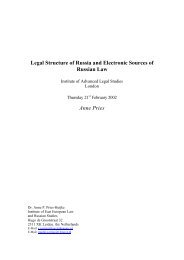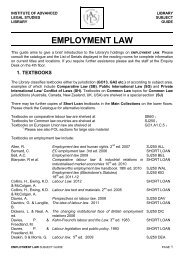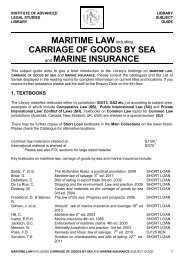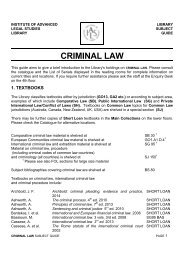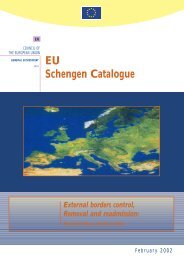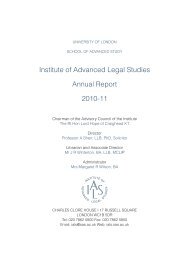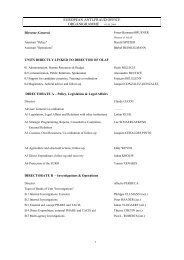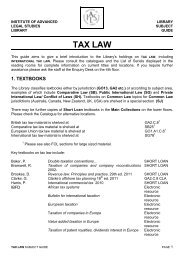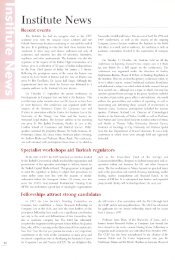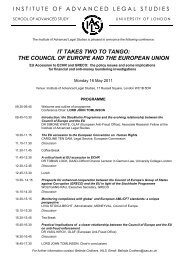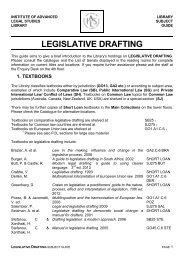a thesis - Institute of Advanced Legal Studies
a thesis - Institute of Advanced Legal Studies
a thesis - Institute of Advanced Legal Studies
You also want an ePaper? Increase the reach of your titles
YUMPU automatically turns print PDFs into web optimized ePapers that Google loves.
68 EXPRESS TRUSTS.<br />
EXECUTORY TRUSTS.<br />
" In matters executory or in cases <strong>of</strong> articles or a will directing<br />
a conveyance, where the words <strong>of</strong> the articles or will are improper<br />
or informal the court will not direct a conveyance according to<br />
such improper or informal expressions, but will order the conveyance<br />
or settlement to be made in a proper or legal manner, so as<br />
may best answer the intent <strong>of</strong> the parties." (Stamford v. Hobart<br />
(1870), 3 Bro. P. 0. 31; and see Glenorchy v. Bosville (1733),<br />
Cas. t. Talbot, 3; Austen v. Taylor (1759), 1 Eden, 361; White v.<br />
Carter (1766), 2 Eden, 367; Jervoise v. Duke <strong>of</strong> Northumberland<br />
(1820), 1J. & W. 570.)<br />
" In construing an executory trust a court <strong>of</strong> equity exercises<br />
a large authority in subordinating the language to the intent,"<br />
said Lord Westbury in SackviUe- West v. Viscount Holmesdale<br />
(1870, L. E. 4 H. L. at p. 565. See also other cases cited<br />
below).<br />
The origin <strong>of</strong> the rule, according to Lord Hatherley (L. R.<br />
4 H. L. at p. 553), may be traced to the desire to obviate the<br />
consequence <strong>of</strong> the extremely technical doctrine in Shelley's Case.<br />
Lord Eldon seems at one time to have felt some hesitation in<br />
accepting the doctrine (see his judgment in Newcastle v. Lincoln<br />
(1806), 12 Vesey, 236), but he afterwards fully assented to it.<br />
(Jervoise v. Duke <strong>of</strong> Northumberland (1820), 1 J. & W. at p. 571;<br />
and see L. E. 6 Eq. at p. 548.)<br />
Executory trusts are most frequently to be found in, although<br />
they are not confined to, marriage articles and wills, and these<br />
require separate consideration.<br />
Executory Trusts in Marriage Articles.—In the case <strong>of</strong> marriage<br />
articles there is a presumption arising from the nature <strong>of</strong> the document<br />
that the intention <strong>of</strong> the settlor was to make a provision for<br />
the children <strong>of</strong> the marriage, and the construction <strong>of</strong> the instrument<br />
is controlled by this presumption. (Rochford v. Fitzmaurice<br />
(1842), 2 Dr. & War. at p. 18.)<br />
" "When the object," said Sir "W. Grant, M. E., in Blackburn v.<br />
Stables (1814, 2 V. & B. 369), "is to make a provision by the<br />
settlement <strong>of</strong> an estate for the issue <strong>of</strong> a marriage, it is not to be<br />
presumed that the parties meant to put it in the power <strong>of</strong> the father<br />
to defeat that purpose and to appropriate the estate to himself.<br />
If, therefore, the agreement is to limit an estate for life with


